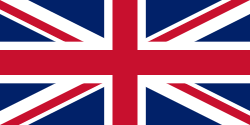The United Kingdom is a sovereign nation located in Northwestern Europe, comprising England, Scotland, Wales, and Northern Ireland. This constitutional monarchy and parliamentary democracy has a rich history, diverse geography, and significant global influence.
Geography Shapes the Nation
The UK occupies the majority of the British Isles archipelago, covering 94,354 square miles. Its landscape varies from lowland terrain to mountainous regions, with the Tees-Exe line roughly dividing these areas. The country’s coastline stretches an impressive 11,073 miles, connecting it to the North Atlantic Ocean, North Sea, English Channel, Celtic Sea, and Irish Sea.
Climate Defines Daily Life
Most of the UK experiences a temperate climate with cool temperatures and consistent rainfall. However, climate patterns vary:
- Coastal areas enjoy milder winters due to the Gulf Stream’s influence
- Upland regions in England, Wales, and Scotland face harsher conditions
- Scotland’s higher elevations even experience subarctic and tundra climates
Climate change impacts the UK significantly. In 2023, it contributed to a third of food price increases, highlighting the nation’s vulnerability to global environmental shifts.
History Forges National Identity
The UK’s story spans millennia, from Neolithic settlements to modern global power. Key historical milestones include:
- Roman conquest in 43 AD
- Norman invasion of 1066
- Union of England and Scotland in 1707
- Industrial Revolution leadership
- Two World Wars and subsequent decolonization
This rich tapestry of events has shaped the UK’s cultural, political, and economic landscape.
Government Balances Tradition and Democracy
The UK operates under a unique system of constitutional monarchy and parliamentary democracy. King Charles III serves as head of state, while the Prime Minister leads the government. As of July 2024, Sir Keir Starmer holds this position.
Devolution Distributes Power
Since 1999, a process of devolution has granted varying degrees of autonomy to Scotland, Wales, and Northern Ireland. Each has its own parliament or assembly, controlling specific devolved matters. The Scottish Parliament wields the most extensive powers among these bodies.
Economy Drives Global Influence
The UK boasts the world’s sixth-largest economy by nominal GDP. Key economic factors include:
- A dominant service sector, accounting for 80% of GVA in 2021
- London’s status as a global financial hub
- Strengths in creative industries, automotive manufacturing, and aerospace
- A shift towards sustainable practices, with plans for net-zero emissions by 2050
Culture Spans Centuries
British culture has left an indelible mark on the world. The English language, now globally dominant, originated here. The UK’s contributions to literature, music, sport, and science continue to shape global discourse and innovation.
Diversity Enriches Society
Modern UK society is increasingly diverse. Immigration, particularly from former colonies, has created a multicultural tapestry. In 2011, 87.2% of the population identified as white, while 12.8% belonged to ethnic minority groups.
The United Kingdom’s complex history, robust democracy, and cultural contributions make it a fascinating study in nation-building and global influence. From its misty highlands to its bustling cities, the UK continues to evolve while maintaining its unique character on the world stage.
Citations:
The United Kingdom of Great Britain and Northern Ireland, commonly known as the United Kingdom (UK) or Britain, is a country in northwestern Europe, off the coast of the continental mainland. It comprises England, Scotland, Wales and Northern Ireland, with a population of over 69 million in 2024. The UK includes the island of Great Britain, the north-eastern part of the island of Ireland, and most of the smaller islands within the British Isles, covering 94,354 square miles (244,376 km2). It shares a land border with the Republic of Ireland and is surrounded by the Atlantic Ocean, the North Sea, the English Channel, the Celtic Sea and the Irish Sea, while maintaining sovereignty over the Crown Dependencies and the British Overseas Territories. The capital and largest city of England and the UK is London; Edinburgh, Cardiff and Belfast are the national capitals of Scotland, Wales and Northern Ireland.
United Kingdom of Great Britain and Northern Ireland | |
|---|---|
| Anthem: "God Save the King" | |
Coat of arms: Used in relation to Scotland (right) and elsewhere (left) | |
| Capital and largest city | London 51°30′N 0°7′W / 51.500°N 0.117°W |
| National language | English |
| Regional and minority languages | |
| Ethnic groups | |
| Religion (2021/2022) |
|
| Demonyms |
|
| Government | Unitary parliamentary constitutional monarchy |
• Monarch | Charles III |
| Keir Starmer | |
| Legislature | Parliament |
| House of Lords | |
| House of Commons | |
| Formation | |
| 1535 and 1542 | |
| 24 March 1603 | |
| 22 July 1706 | |
| 1 May 1707 | |
| 1 January 1801 | |
| 6 December 1922 | |
| Area | |
• Total | 244,376 km2 (94,354 sq mi) (78th) |
• Land | 242,741 km2 (93,723 sq mi) |
| Population | |
• 2024 estimate | |
• 2021 census | |
• Density | 285/km2 (738.1/sq mi) (48th) |
| GDP (PPP) | 2025 estimate |
• Total | |
• Per capita | |
| GDP (nominal) | 2025 estimate |
• Total | |
• Per capita | |
| Gini (2021) | medium inequality |
| HDI (2023) | very high (13th) |
| Currency | Pound sterling (£) (GBP) |
| Time zone | UTC+0 (GMT) |
• Summer (DST) | UTC+1 (BST) |
| Date format | dd/mm/yyyy (AD) |
| Calling code | +44 |
| ISO 3166 code | GB |
| Internet TLD | .uk |
Britain has been continuously inhabited since the Neolithic. In AD 43 the Roman conquest of Britain began. The Roman departure between 383 and 410 was followed by Anglo-Saxon settlement beginning around 450. In 1066 the Normans conquered England. Over the 17th century the role of the British monarchy was reduced, particularly as a result of the English Civil War. In 1707 the Kingdom of England and the Kingdom of Scotland united under the Treaty of Union to create the Kingdom of Great Britain. The Acts of Union 1800 incorporated the Kingdom of Ireland to create the United Kingdom of Great Britain and Ireland in 1801. Most of Ireland seceded from the UK in 1922 as the Irish Free State, and the Royal and Parliamentary Titles Act 1927 created the present United Kingdom.
The UK became the first industrialised country and was the world's foremost power for the majority of the 19th and early 20th centuries, particularly during the Pax Britannica between 1815 and 1914. The British Empire was the leading economic power for most of the 19th century, a position supported by its agricultural prosperity, its role as a dominant trading nation, a massive industrial capacity, significant technological achievements, and the rise of 19th-century London as the world's principal financial centre. At its height in the 1920s, the empire encompassed around a quarter of the world's landmass and population, and was the largest in history. However, its involvement in the First World War and in the Second World War damaged Britain's economic power, and a global wave of decolonisation led to the independence of most British colonies.
The UK is a constitutional monarchy and parliamentary democracy with three distinct jurisdictions: England and Wales, Scotland, and Northern Ireland. Scotland, Wales and Northern Ireland have their own governments and parliaments which control various devolved matters. A developed country with an advanced economy, the UK ranks amongst the largest economies by nominal GDP and is one of the world's largest exporters and importers. As a nuclear state with one of the highest defence budgets, the UK maintains one of the strongest militaries in Europe. Its soft power influence is observable in the legal and political systems of many of its former colonies, and British culture is globally influential, particularly in language, literature, theatre, cinema, music and sport, notably in the Anglosphere and the Commonwealth. A great power, the UK is part of numerous international organisations.






